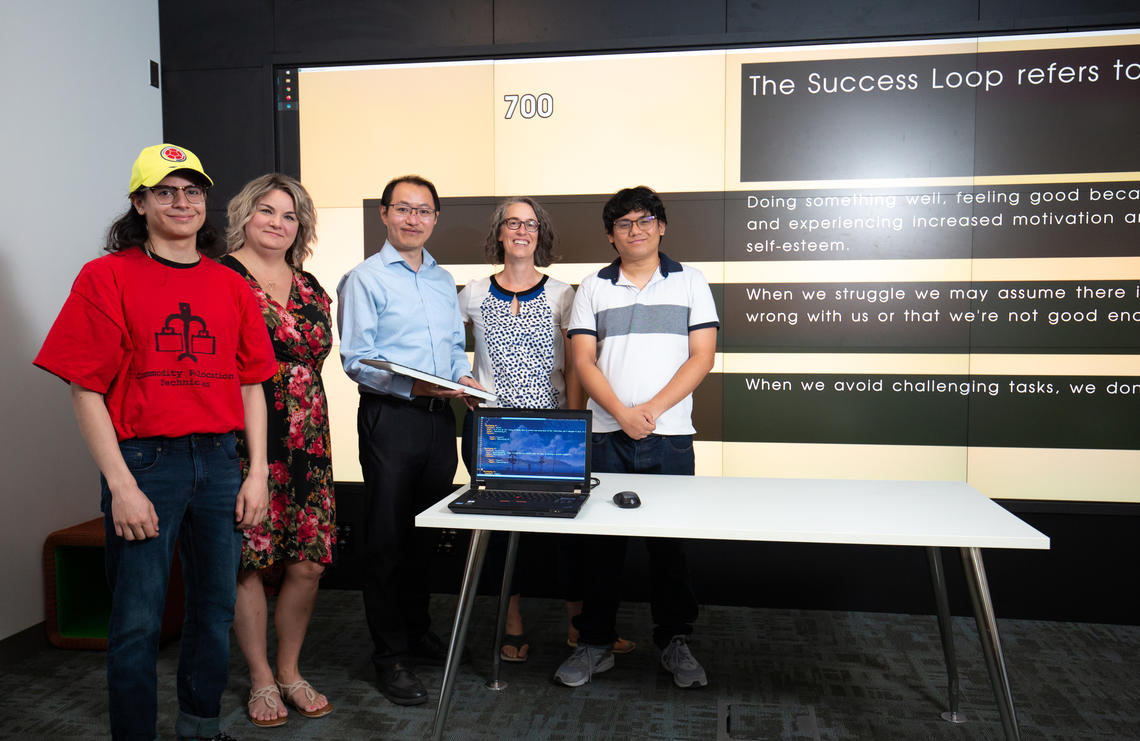Aug. 26, 2022
Online games may reduce post-secondary peril for learning-challenged students

There are coping skills for easily-distracted minds, but how do you teach complex self-management lessons to someone who struggles to focus?
Two UCalgary researchers say the solution may be found in video games — and by gamifying lessons on post-secondary survival skills, Dr. Meadow Schroeder, PhD'10, and Dr. Richard Zhao, PhD, hope they can help teen scholars with ADHD and learning disabilities.
“We wanted to introduce gaming elements to make it entertaining for the kids, in order to hold their attention,” explains Schroeder, associate professor in School and Applied Child Psychology (SACP) at Werklund School of Education and graduate program director for Educational Psychology.
“It’s intended as a one-stop shop for high school students, where we bring them through a module explaining what they need to plan for heading into university, and once you are there, how can you be a successful learner.”
Post-secondary a challenge for students with ADHD and learning disabilities
Through a series of games, future post-secondary students learn about their own unique challenges, how to best approach university learning, and the stigma they may face and how to self-advocate.
The need for such preparation comes as thousands of students with ADHD and learning disabilities look to higher education for their career path, and then find themselves struggling to keep up.
With backing and financial support from the LD/ADHD Network and in collaboration with the Foothills Academy, the researchers hope to change that.
“High school students with learning disabilities transition into university, and they tend not to do very well,” says Schroeder.
“Fewer of them actually attend post secondary, and once they are there, they are at higher risk of dropping out.”

Online games may reduce post-secondary peril for learning-challenged students.
Riley Brandt, University of Calgary
Finding a way to focus distracted minds
Knowing that pre-university preparation can make a massive difference for such learners, and that ADHD minds often do very well when interested in a subject, Schroeder realized gamified learning may provide the solution.
Teaming up with Zhao, an assistant professor of computer science in the Faculty of Science who specializes in gaming and game technology, the two researchers are now working on a pilot prototype for test runs, starting this fall.
Ultimately, the training modules being gamified by Zhao and a transdisciplinary team (including computer science student David Garcia, drama student Jason Cabueños, SACP graduate student Riley Morrell, and Tanya Keto, a registered psychologist at Foothills Academy) will be made available to schools across Alberta.
Choose your own adventure
It’s hoped the “Choose Your Own Adventure” style learning will captivate future post-secondary scholars.
“We're using story-based elements, turning a boring learning module into an interesting, engaging story,” explains Zhao. “As students go through the story, they end up learning the intended content.”
Unlike the famous Choose Your Own Adventure books that gave all readers the same choices, the games being designed in Zhao’s labs are customized for each individual user — and the more you play, the more interesting the game becomes.
“We can incorporate artificial intelligence to learn the student's preferences and then adapt the story and learning to for the individual students,” says Zhao.
“Each student has different learning styles and abilities, and as they go through the modules, we can adapt to them.”

From left: David Garcia, Tanya Keto, Richard Zhao, Meadow Schroeder, and Jason Cabueños.
Riley Brandt, University of Calgary





